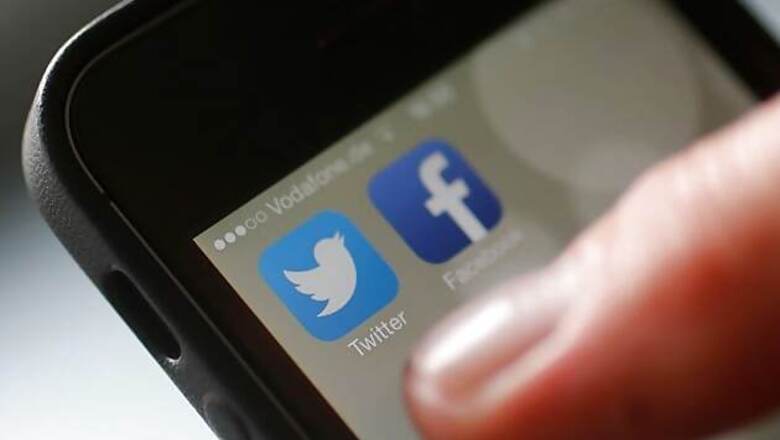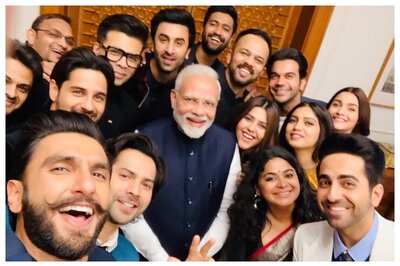
views
Most teens and young adults on Facebook, Twitter or other social networking sites see them at least sometimes: slurs, offensive images or mean-spirited video clips that stigmatize groups of people. Who's targeted most often? Overweight people, according to a poll of Internet users ages 14 to 24.
When does it seem most hurtful? When aimed at transgender people. What about potshots at blacks or women? Young people mostly take those as jokes.
In the poll from The Associated Press-NORC Center for Public Affairs Research and MTV, young people take stock of the discriminatory words and images they see online:
Who gets slammed online?
-Those who are overweight (54 percent of young people see them targeted sometimes or often)-Gay, lesbian or bisexual people (50 percent)-African-Americans (46 percent)-Women (44 percent)-Men who dress or carry themselves in a feminine way (42 percent)-Immigrants (34 percent)-Latinos (32 percent)-Muslims (31 percent)-Women who dress or carry themselves in a masculine way (31 percent)-Transgender people (31 percent)
Young people are more likely to view slurs or discriminatory images as mean-spirited rather than as a joke when they target:
-Transgender people (63 percent say it's most often meant to be hurtful)-Muslims (60 percent)-Gay, lesbian or bisexual people (54 percent)-Those who are overweight (53 percent)-Men who dress or carry themselves in a feminine way (53 percent)
Racial insults are less likely to be considered intentionally hurtful. A majority of young people say racial groups are maligned mostly in a joking way:
-African-Americans (64 percent say it's most often meant as a joke)-Latinos (67 percent)-Asian-Americans (73 percent)
What about sexism?
- A big majority - 7 in 10 - say demeaning comments, pictures and videos about women are mostly jokes, not meant to be hurtful. Women are about as likely to feel that way as men are.- About 60 percent of those polled see the word "bitch" used against people online or in text messages at least sometimes. Fewer than 30 percent are very offended by it when it's aimed at someone else.
Christianity, the nation's dominant religion, isn't high on the list of online targets.
-But when slurs and images malign Christians, they are more likely to be seen as intentionally hurtful than those aimed at racial minorities.-About half said discriminatory stuff about Christians was mostly hurtful; half thought it was joking.Another target group that got a split decision? Immigrants.
Overall, young people say this stuff is mostly an attempt at humor.
The poll ranked four possible reasons why people text or share discriminatory language:
-They're trying to be funny (53 percent think that's a major reason)-They think it's "cool" to use that language (45 percent)-They don't realize the language is offensive (32 percent)-They really hold hateful feelings about the group (30 percent)
Although "hateful feelings" aren't rated as a prime motive, a big majority of young people - 7 in 10 - say hatred is at least a minor reason for posting or texting slurs about a group.
Young people seem jaded to a lot of the offensive stuff they see on the social network sites and online gaming communities.
-Fewer than half, for example, say they are very offended by online use of the N-word for African-Americans.-But that doesn't mean they think tweeting slurs or posting derogatory videos is all right.-A majority say it's never OK to use discriminatory language, even if you're just kidding.



















Comments
0 comment